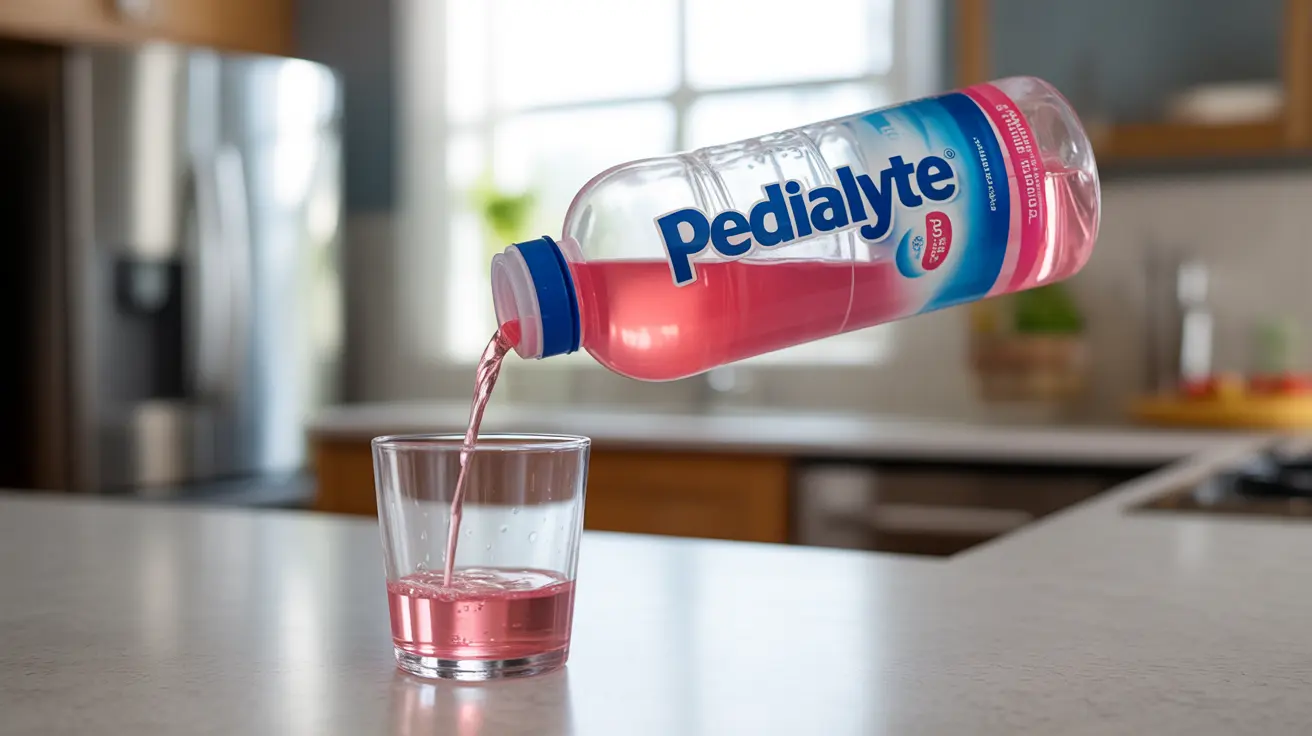After a night of drinking, many people turn to Pedialyte as their go-to hangover remedy. This popular rehydration solution, originally designed for children with diarrhea, has gained significant attention for its potential benefits in addressing alcohol-related dehydration and other hangover symptoms. But does the science support this trending hangover solution?
How Pedialyte Works for Hangover Recovery
Pedialyte's effectiveness in treating hangover symptoms primarily stems from its carefully balanced formulation of electrolytes, minerals, and water. Unlike regular water alone, Pedialyte contains specific amounts of sodium and potassium that help your body retain fluids more effectively, potentially speeding up the rehydration process after alcohol consumption.
Key Components That Combat Hangover Symptoms
The main ingredients in Pedialyte that may help with hangover recovery include:
- Sodium and chloride for maintaining proper fluid balance
- Potassium to support muscle and nerve function
- Zinc to support immune function
- Dextrose for energy restoration
- Low sugar content to prevent further dehydration
Timing and Usage for Maximum Benefit
The timing of Pedialyte consumption can significantly impact its effectiveness in managing hangover symptoms. While it's not a magical cure, strategic use can help minimize discomfort.
Before Drinking Alcohol
Proactively drinking Pedialyte before alcohol consumption may help maintain hydration levels, though it won't prevent a hangover entirely. Consider having a serving before going out and keeping your body hydrated throughout the night with water between alcoholic drinks.
During Recovery
The morning after drinking, Pedialyte can be most beneficial when consumed within the first few hours of waking. Sip the solution slowly rather than drinking it quickly to allow your body to absorb the electrolytes effectively.
Limitations of Pedialyte for Hangovers
While Pedialyte can help address dehydration, it's important to understand its limitations. It cannot:
- Break down alcohol faster in your system
- Reverse liver strain from alcohol consumption
- Cure nausea directly
- Address all hangover symptoms equally
Comparing Pedialyte to Other Recovery Options
When choosing a hangover recovery drink, it's helpful to understand how Pedialyte compares to alternatives. While water is essential, Pedialyte's electrolyte balance may make it more effective for rapid rehydration. Sports drinks often contain higher sugar content, which could potentially worsen dehydration symptoms.
Frequently Asked Questions
How does Pedialyte help with hangover symptoms like dehydration and headaches?
Pedialyte helps with hangover symptoms by replenishing lost electrolytes and fluids more effectively than water alone. Its balanced formulation of sodium, potassium, and other minerals helps your body retain hydration, potentially reducing headache severity and other dehydration-related symptoms.
Can drinking Pedialyte before or after alcohol prevent or reduce hangovers?
While Pedialyte cannot prevent hangovers entirely, drinking it before alcohol consumption may help maintain hydration levels. Consuming it after drinking can help restore electrolyte balance and support faster recovery, though it won't eliminate all hangover symptoms.
Is Pedialyte better than water, Gatorade, or coconut water for hangover recovery?
Pedialyte typically offers better hangover recovery benefits than these alternatives due to its optimal electrolyte balance and lower sugar content. While all these options can help with hydration, Pedialyte's specific formulation is designed for rapid rehydration.
What hangover symptoms does Pedialyte not help with, and why?
Pedialyte cannot directly address symptoms like nausea, anxiety, or fatigue caused by alcohol's effects on your nervous system and liver. It primarily helps with dehydration-related symptoms but cannot speed up alcohol metabolism or reverse other physiological impacts of drinking.
How should I use Pedialyte effectively to manage hangover symptoms?
For best results, drink Pedialyte slowly throughout your recovery period, starting when you wake up. Aim to consume about 16-32 ounces, depending on your level of dehydration. Combine this with rest, proper nutrition, and adequate water intake for optimal recovery.




